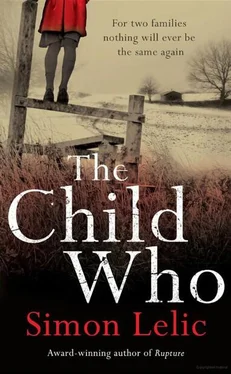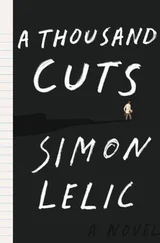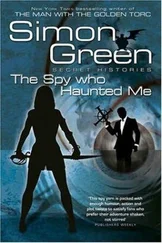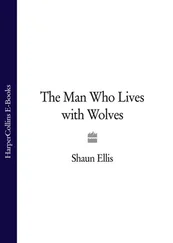No one moved.
‘I just need the files, Howard. I’ll catch myself up and then go and see Daniel this afternoon.’
From her spot in the corner, Jenny took a step towards the door. ‘If it’s okay with you, I should probably…’ She pointed out her escape route but hesitated and lost her opportunity.
‘For pity’s sake, Howard,’ said Terry. ‘Just tell him. Can’t you?’
Leo glared. He turned to Howard. ‘Or if it’s a question of time. If you think we should try for a deferment…’
‘Deferment? Christ, Leo, what the hell do we need a deferment for!’
‘The Crown would agree,’ said Leo, ignoring Terry and facing his boss. ‘Surely. Given the circumstances.’
‘That’s not the point!’ Terry, too, appealed to Howard. They might have been advocates in a courtroom, their boss the sitting judge. ‘Howard. Really. Don’t you think—’
‘Enough!’ Howard raised his hands, lifting his palms close to his ears. ‘Gentlemen, please. That’s quite enough.’ He glared at Terry and only reluctantly, it seemed, addressed Leo. ‘Leonard. Listen. Things have moved on. Surely you can understand that. Your priority now should be your family. Don’t worry about Daniel Blake.’ He attempted another smile. ‘It’s being taken care of. Terence here—’
‘Terry doesn’t give a damn about Daniel! If it were up to him, the boy would have been strung up by now in his cell!’
Terry brandished a finger. ‘Now wait just a minute—’
‘Terence is a professional, Leonard.’ Howard’s expression set stern. ‘As, may I remind you, are you. There is no need for acrimony, particularly given that Terry has acted entirely properly since assuming your responsibilities. The boy’s parents are happy, the barrister’s happy, even your psychologist—’
‘Karen? You spoke to Karen? And Dale. You spoke to Dale?’ Leo swung his ire from Howard to Terry and back again.
‘Someone had to,’ Terry mumbled and Howard stung him with a look.
‘Naturally we did,’ Howard said to Leo. ‘The arraignment, as you know, is on… Let’s see…’
‘Friday.’ Leo and Terry spoke as one. They exchanged scowls.
‘Friday. Exactly. So obviously we didn’t have time to—’
‘What about Daniel?’ Leo interrupted. ‘You said his parents were happy, that Dale was happy. What about the client?’
Howard was content, this time, to let Terry answer.
‘The client,’ Terry said, emphasising the word just as Leo had done, ‘is happy enough too. I saw him this morning. That’s what I wanted to say to you,’ he told Howard. ‘He’s given me my instructions. He couldn’t have been clearer. He’s happy, finally, that someone has spelled out to him exactly what’s at stake.’
Leo faced him. ‘What’s that supposed to mean?’
Terry splayed his hands. ‘Just what I said. I’m not going to start criticising, Leo. Not given what’s happened to your kid.’
‘Don’t let it stop you, Terry! Criticise away, if you feel the urge!’
‘Gentlemen! Please! Let’s try and keep this amicable, shall we?’
Leo glared and Howard recoiled. Leo might have said something too but Terry’s words finally resonated. ‘What instructions? What did you do, Terry? What did you say to him?’
His parents are happy. The barrister’s happy. Even Karen…
‘Terry? Answer me. What did you tell Daniel he should do?’
Terry, though, did not reply. His expression said enough.
He had not plannedto be here. He had been awake from three and in his car by five and here, from seven, only by an accident of his subconscious. For some time he had sat, in the cinch of his seat belt and with the engine mumbling, until he had overcome his reluctance to test the silence. At first it had been consuming – overwhelming, almost – but it fissured after a moment and the world outside became audible through the cracks: the sleepy groan of the sign on the roadside wall of the pub; gulls or gannets, not yet in full voice but clearing their throats once in a while as they sketched shapes against the pallid blue sky; the river, beyond the bank bordering the car park, bloated from the rain and spilling itself either side. And the cold. Leo could hear it, somehow. Scratching its icy fingers against the windscreen and beckoning him from the waning warmth of the car’s interior.
He released his seat belt, let it slide across his chest. He tugged his woollen hat below his ears and searched the car seat next to him for his gloves. Beneath the maps and the flyers and the half-eaten sandwiches wrapped in foil, he found only the left. The right was not on the floor either, nor tucked down the side of the seat, so Leo settled for wearing one.
The air, unexpectedly, was still. The sign continued to creak and the treetops continued to lurch but where Leo had stopped the car he was sheltered from the wind by the walls of the pub. It was as cold as he had feared, however, and he drew the zip of his anorak tight to his chin. He checked about, as though uncertain in which direction to walk, though he had known what route he would take, really, the moment it had registered where he had arrived. He drove his hands deep into his pockets and crunched across the gravelled car park in the direction of the river.
He suspected he was being watched. Not because he felt it, in the hairs on his neck or otherwise, but because it was inconceivable his presence was not being tracked. He had seen her every day, the landlord had said. Every school day, at least. From his morning spot by the window in the kitchen, he noticed everything that passed his pub between just gone seven until just about nine. Which was not a lot, as it happened. And if he had noticed Felicity on the day she was killed – if he knew, as he did now, that he had been the last person, but one, to see her alive – how could he fail to be watching on every day that followed?
Leo wondered what the landlord – Lodge? Loach? – would be thinking of him if he were watching. Whether he would assume Leo was a journalist, slower or more persistent than all the others, or some morbid breed of tourist, of which he had no doubt also seen plenty. Leo glanced towards the building, to the windows most likely to belong to the kitchen, but he saw only blackness cast back; the glint, on the upper floor, of the freshly dawned sun.
He turned his back to the pub and crossed the footbridge, his heavy winter boots unleashing what felt like a localised earthquake. On the far side he turned south, just as Felicity had, but hesitated when he reached the stile. Beyond, the path tapered and curved out of sight. It was the same mix of mud and grit as the ground on which he stood but somehow the space beyond seemed a different country. It was as though the stile were a border; a crossing into somewhere wild. Although if Leo had learnt anything in the past few weeks it was that such clear delineations, in this world, did not exist.
With his ungloved hand, he grasped the post, in the same place Felicity would have had to grasp. He stepped and hoisted his leg and dropped down onto the other side. He tugged at his coat where it had ridden up and, wincing against the headwind, trudged on.
He was looking for his daughter. It was what he told himself. Because it was logical, in a way, that of all places he should be looking here. He was being punished – Ellie was – for what Daniel had done to Felicity. Was it not reasonable, then, that he should look for parallels, for clues in Felicity’s fate as to Ellie’s? Felicity was found along this stretch of river, not far from where Daniel had caught up with her. She was killed at this time of day and her body discovered almost two weeks after she went missing, just as two weeks had passed since Ellie’s disappearance. There had been a search, for both girls, that at first had yielded nothing. The parents had been through denial, anger, desperation, grief. So it was time. Wasn’t it? According to the rules by which Ellie’s abductor was playing, the game was up and Leo had lost. Ellie had. Leo knew that already and yet he did not – which was why he was here, now, tracking Felicity’s path in search of his daughter.
Читать дальше












